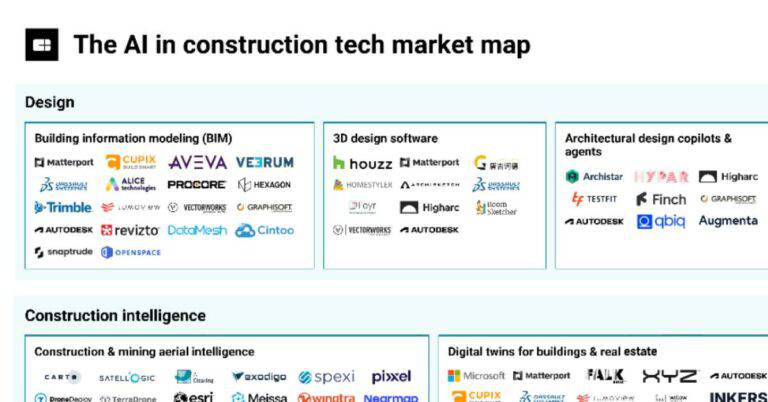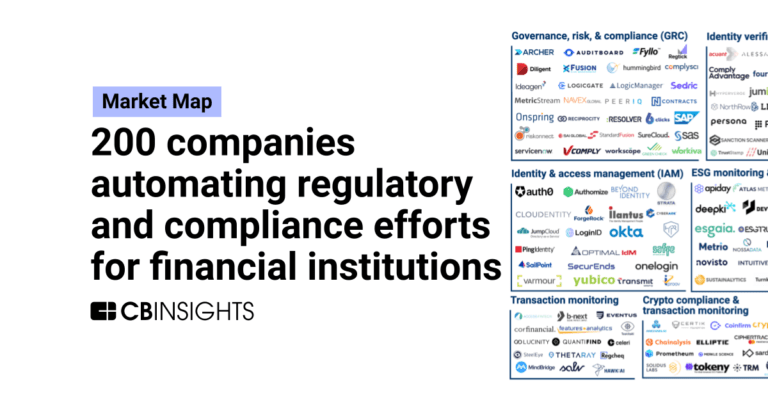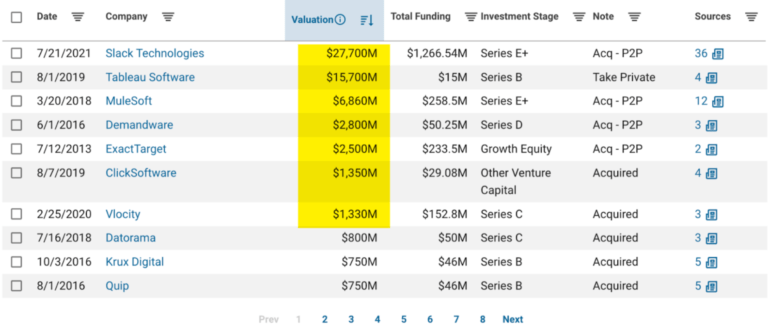
ServiceNow
Founded Year
2003Stage
PIPE | IPOTotal Raised
$94.02MMarket Cap
194.93BStock Price
933.67Revenue
$0000About ServiceNow
ServiceNow provides a cloud-based platform and solutions aimed at digitizing and unifying organizations across various sectors. Its offerings assist businesses in managing workflows and improving connections between employees and customers. Its solutions are applicable to industries looking to improve operational efficiency and service delivery. ServiceNow was formerly known as Glidesoft. It was founded in 2003 and is based in Santa Clara, California.
Loading...
ESPs containing ServiceNow
The ESP matrix leverages data and analyst insight to identify and rank leading companies in a given technology landscape.
The professional services automation (PSA) market provides integrated software platforms that help consulting firms, IT services companies, agencies, and other project-based businesses manage their complete service delivery lifecycle. PSA solutions combine project management, resource scheduling and optimization, time and expense tracking, project accounting, billing/invoicing, and analytics into …
ServiceNow named as Highflier among 15 other companies, including Workday, SAP, and Oracle.
Loading...
Research containing ServiceNow
Get data-driven expert analysis from the CB Insights Intelligence Unit.
CB Insights Intelligence Analysts have mentioned ServiceNow in 7 CB Insights research briefs, most recently on Aug 27, 2025.
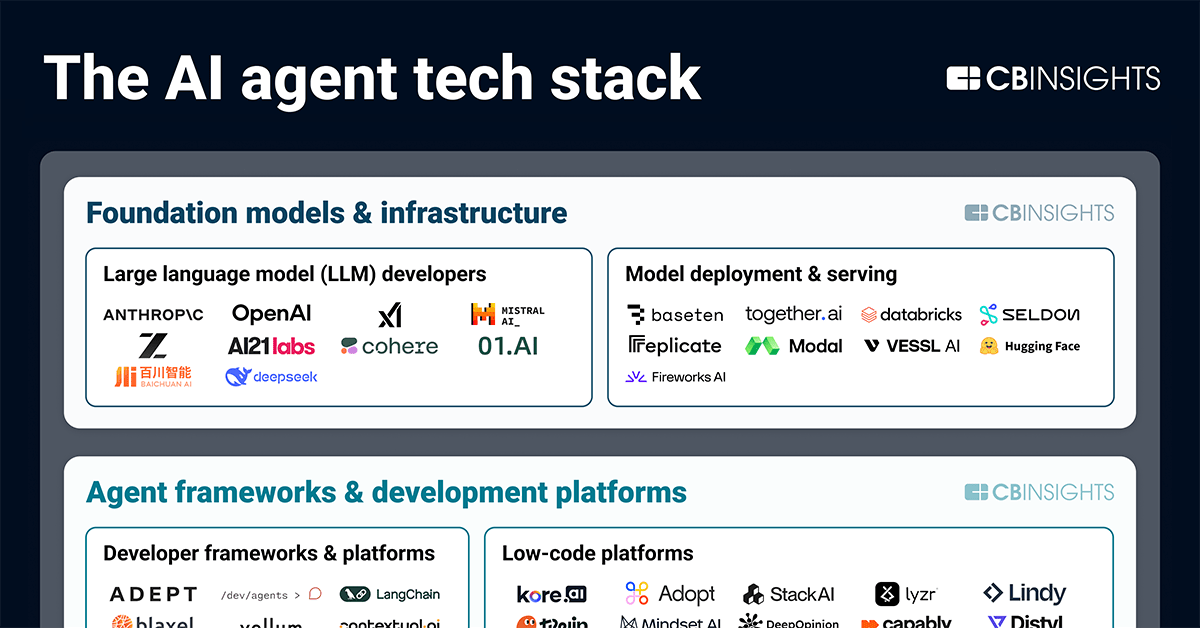
Aug 22, 2025
The AI agent tech stack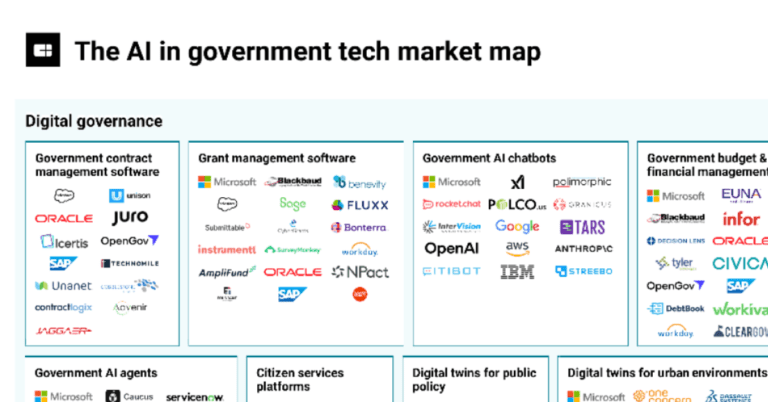
Aug 14, 2025
310+ AI companies transforming government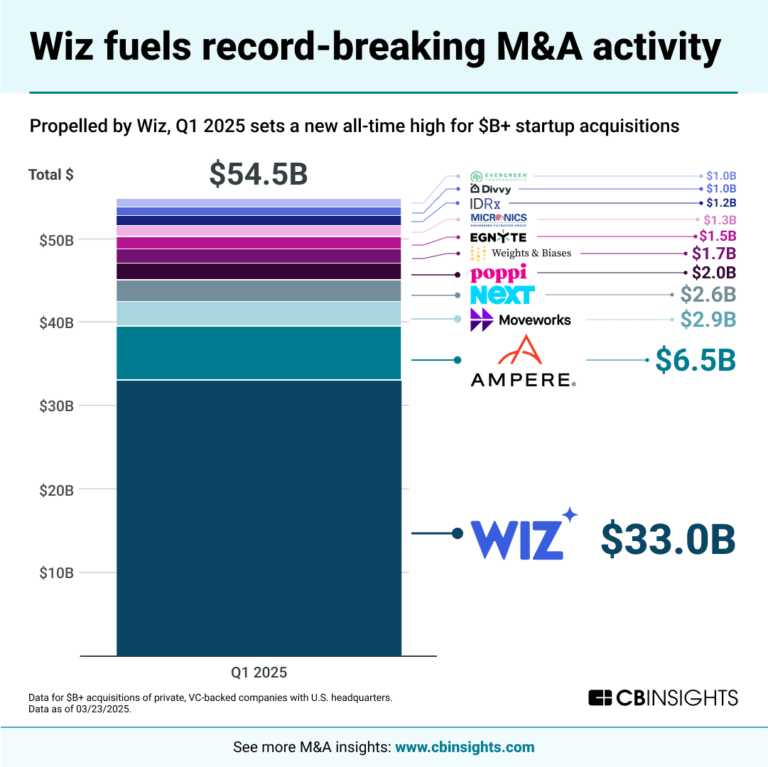
Mar 26, 2025
Nvidia’s next big bet? Physical AI
Mar 21, 2025 report
7 tech M&A predictions for 2025Expert Collections containing ServiceNow
Expert Collections are analyst-curated lists that highlight the companies you need to know in the most important technology spaces.
ServiceNow is included in 7 Expert Collections, including Construction Tech.
Construction Tech
1,508 items
Companies in the construction tech space, including additive manufacturing, construction management software, reality capture, autonomous heavy equipment, prefabricated buildings, and more
Regtech
1,811 items
Technology that addresses regulatory challenges and facilitates the delivery of compliance requirements. Regulatory technology helps companies and regulators address challenges ranging from compliance (e.g. AML/KYC) automation and improved risk management.
Conference Exhibitors
5,302 items
Advanced Manufacturing
6,886 items
Companies in the advanced manufacturing tech space, including companies focusing on technologies across R&D, mass production, or sustainability
Job Site Tech
960 items
Companies in the job site tech space, including technologies to improve industries such as construction, mining, process engineering, forestry, and fieldwork
Renewable Energy
4,803 items
ServiceNow Patents
ServiceNow has filed 1320 patents.
The 3 most popular patent topics include:
- data management
- information technology management
- database management systems

Application Date | Grant Date | Title | Related Topics | Status |
|---|---|---|---|---|
2/25/2022 | 4/8/2025 | Information technology management, Production and manufacturing, Systems engineering, Process management, Quality | Grant |
Application Date | 2/25/2022 |
|---|---|
Grant Date | 4/8/2025 |
Title | |
Related Topics | Information technology management, Production and manufacturing, Systems engineering, Process management, Quality |
Status | Grant |
Latest ServiceNow News
Sep 10, 2025
When JPMorgan automated 1.7 million IT requests with bots, their competitors took notice. Today, the gap between basic automation and AI-powered workflows isn't just technical—it's a competitive advantage. As someone who's worked with both scrappy startups and sprawling enterprises, I've seen firsthand how automation separates the overwhelmed from the overachievers. Every week, I consult with teams trying to untangle spaghetti logic or retroactively patch fragmented tools. When done right, automation doesn't just save time—it saves sanity. Workflow Automation's Evolution (And Why It Matters Now) Workflow automation has grown up. What began as rule-based scripting has morphed into sprawling ecosystems powered by AI. There's a clear maturity model. And sorry, but your low-code builder isn't top of the food chain. As autonomy increases, so does complexity—but the payoff is worth it. And while no single solution fits every industry or need, the horizon points toward multi-agent systems, assuming you're ready to manage a small digital army. The Evolution Of Workflow Automation Let's rewind to the early days, when automation meant building a five-step Zap (a term commonly used to refer to an automated workflow) that copied rows in a spreadsheet. We called it "if this, then that." It was cute. It still is. But automation has grown up. Now, it coordinates disaster response and learns from its mistakes like it's fresh out of a mindfulness retreat. We can map this glow-up in eight stages, each with more autonomy and complexity. From Rules To Reason Stage one? Script-based automation. It's great for repetitive tasks, like filing invoices. But the moment someone renames a field, the whole thing falls apart. It's cheap and fast—until it breaks. Event-driven systems respond to triggers—like a file upload or an email ping—but they're still bound by rigid logic. Think of them as interns: eager, fast and just smart enough to cause problems. Branching workflows introduce if/else logic. This is more advanced, but still not what you'd call thinking. It's great for HR onboarding or claims processing, but not so great when the rules get fuzzy. Templates come next. Add a dash of AI for spellcheck or subject-line testing, and boom! Your invoice tool is slightly less painful. This is where basic OCR or templated email campaigns live. Then we hit AI-augmented workflows—and now you're really cooking with machine learning. Want a chatbot that prioritizes tickets based on sentiment? This is your lane. Case in point: One retailer automated 93% of its invoicing by combining RPA with AI-driven document understanding, processing 7,000 invoices each month and saving 160-plus hours per month. But it gets juicier. Multi-tool AI orchestration connects a web of bots, APIs and AI models into a coordinated act. Forecasting demand, placing orders, scheduling shipments—it's like the Ocean's Eleven of enterprise ops. Coca-Cola's supply chain now runs on this model, resulting in " a 6% increase in revenue and a 15% reduction in restocking trips Next up are single-agent AI systems. These are the lone wolves of automation. Feed them a goal, and they will break it down, plan the steps and execute—often using LLMs, tools and even a bit of planning memory. Think AutoGPT booking your travel and writing the expense report before you land. Finally, the multi-agent future involves groups of specialized AIs working together like a digital SWAT team. Need legal research done? One agent pulls statutes, another summarizes precedent and a third drafts recommendations. Microsoft and ServiceNow used this model for emergency response workflows, resulting in more than a 10% reduction in MTTR and 4 times speed improvements in cloud discovery Strategic Implementation Roadmap Implementing AI should be tailored to your company's scale. I've seen companies of every size embrace different AI roadmaps. Based on my observations, I've found that solopreneurs often begin with rule-based Zaps, eventually graduating to AI-augmented workflows to reclaim 15% to 20% of their time. Small to midsize businesses (10-100 employees) typically start with template automation before embracing orchestrated AI—a shift that can deliver up to 30% cost reductions. Enterprises are already knee-deep in AI-augmented processes and increasingly piloting multi-agent systems, where the payoff is massive: efficiency gains between 25% and 40% over the first year. When To Level Up: Self-Assessment So, how do you know it's time to level up and embrace a new AI endeavor? If your competitors are delivering faster with leaner teams or your workflows collapse under the weight of one broken step, you're likely due for an upgrade. Teams buried in unstructured data—or spending more time maintaining automation than benefiting from it—are also ready for a rethink. And if 24/7 responsiveness is becoming the customer expectation, AI is your best bet to meet it without burnout. That said, automation isn't a universal cure. If your processes aren't yet standardized, or if your data hygiene is more chaos than consistency, you might end up automating inefficiency. In my own work, I've advised clients to delay automation when the foundational workflows weren't stable—because automating a mess only scales the mess. Navigating Implementation Challenges Research from McKinsey finds that leaders who are not steering fast enough are the biggest barrier to scaling with AI. That's why our first step is to start with a cross-functional steering committee and clearly defined KPIs. For enterprises, pilot in non-critical departments first. For smaller organizations, focus on customer-facing automation with immediate ROI. In a survey of almost 500 executives , many cited employee resistance as their biggest automation obstacle. Start with tasks people hate, not ones they love. ROI: Not Just A Buzzword Basic RPA or BPA? Expect performance gains. Add in AI, orchestration and autonomy, and you may see even better results. Companies like Anthem Health reduced processing times by 40% and reduced error rates in claims processing by 25%. That said, the road to AI utopia is paved with data pipelines, integration headaches and a dev team that's definitely going to ask for more cloud budget. The question isn't if you'll upgrade your automation—it's whether you'll do it before or after your competition does. Forbes Technology Council is an invitation-only community for world-class CIOs, CTOs and technology executives. Do I qualify?
ServiceNow Frequently Asked Questions (FAQ)
When was ServiceNow founded?
ServiceNow was founded in 2003.
Where is ServiceNow's headquarters?
ServiceNow's headquarters is located at 2225 Lawson Lane, Santa Clara.
What is ServiceNow's latest funding round?
ServiceNow's latest funding round is PIPE.
How much did ServiceNow raise?
ServiceNow raised a total of $94.02M.
Who are the investors of ServiceNow?
Investors of ServiceNow include Intel Capital, Target Partners, Investinor, Alliance Venture, Greylock Partners and 10 more.
Who are ServiceNow's competitors?
Competitors of ServiceNow include Coda, Accelo, Dock Health, Zendesk, Officio.work and 7 more.
Loading...
Compare ServiceNow to Competitors

ClickUp is a project management and productivity platform designed to facilitate team collaboration and efficiency across various industries. The company offers tools including task management, goal tracking, document sharing, and artificial intelligence (AI) powered features to manage workflows and productivity. ClickUp primarily serves sectors that require project management solutions, such as marketing, product development, engineering, and agencies. It was founded in 2016 and is based in San Diego, California.

Teamwork specializes in project management and professional services automation within the service industry. The company's platform offers tools for managing client work, including project planning, time tracking, resource allocation, and profitability reporting. It primarily serves sectors that engage in client work, such as information technology services, agencies, consulting services, and architecture and engineering firms. The company was founded in 2007 and is based in Cork, Ireland.

Pipedrive is a sales CRM and pipeline management software company that provides a platform for tracking sales pipelines, managing leads, and automating sales processes. The company's services include CRM dashboards, sales insights, analytics, and a marketplace for integrations, catering to sales teams in different industries. It was founded in 2010 and is based in New York, New York.

Zoho is a technology company that specializes in business software development across various sectors. The company offers software solutions including customer relationship management, accounting, email services, help desk, IT management, low-code app development, online learning, retail POS, digital family organization, and e-commerce platform integration. Zoho's products support various business operations, including sales, marketing, finance, and IT management. It was founded in 1996 and is based in Chennai, India.
Bernini Labs operates as a technology company. It focuses on and develops a vertical software as a service (SaaS) product. The company's main offering is a specialized software-as-a-service solution designed for a specific industry or business need. It is based in Atlanta, Georgia.

Bird is an artificial intelligence (AI) powered Customer Relationship Management (CRM) platform that focuses on customer engagement across channels, including email, SMS, and WhatsApp. The company offers communication tools and integrates AI-driven agents to assist marketing, sales, support, and financial operations. Bird's platform aims to facilitate customer journeys, optimize marketing campaigns, and support customer interactions and financial transactions for businesses. Bird was formerly known as MessageBird. It was founded in 2011 and is based in Amsterdam, Netherlands.
Loading...

